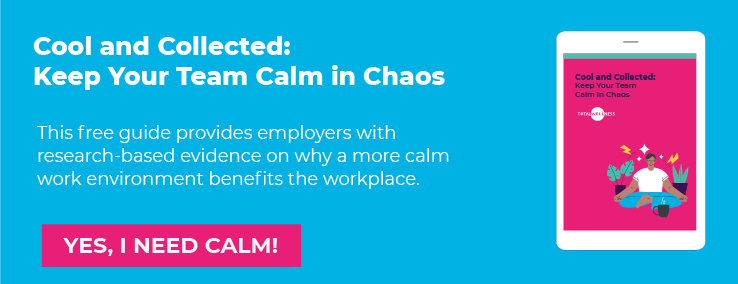We are all guilty of being a Negative Nancy every once in a while. But being a pessimist can have some major health consequences. This is because a negative attitude and mindset can increase tension and stress in the body. In fact, studies have found that the potential health consequences of pessimism can include:

- A weaker immune system
- Chronic stress
- Higher risk of heart disease and stroke
- Chronic aches and pain
In contrast, a 2015 study found that optimists were more likely to eat healthily, keep a healthy BMI, exercise regularly, and maintain a healthy blood pressure. Keeping a more positive and optimistic attitude can help you feel happier and healthier.
Unfortunately, we can’t always control our negative thoughts or attitudes – especially if we’re unaware of them! But with a little bit of practice and some self-awareness, you can learn how to identify negative thoughts and transform them into positive ones.
Here are a few ways to recognize when you’re being negative, plus some tips for adopting a more positive mindset:
You react instead of respond. During times of stress, many of us often react instead of respond. For example, if a co-worker came up to you saying that a major mistake was made, do you find yourself reacting or responding? A reaction would be getting defensive, snappy, or angry. Responding would be giving yourself a moment to take the situation in and then respond in a reasonable and cooperative manner. Reacting is a negative behavior that usually just worsens the situation.
You have trouble accepting compliments. While being modest can be a very positive trait, internalizing that into negativity can lower your feelings of self-worth. For example, if a co-worker compliments you for a job well done, saying something like, “Well, thanks, but it really wasn’t that difficult at all,” undermines your effort and talents. It’s good to be able to accept compliments with grace and allow yourself to share in the happiness others have for you.
You use the word “but” a lot. Saying things like, “That’s awesome, but..” usually tends to accompany a negative attitude. Using the word “but” a lot can mean that you’re not comfortable with only looking at the positives in a situation. Focusing on the negatives rather than the positives can be emotionally draining and increase stress.
You always worry. When you get called into your boss’ office, is your first thought that you are going to get fired? Excessive amounts of worrying and expecting the worst out of every situation is a big sign of having a negative mindset. Too much worrying can make it difficult to feel excited about the future or step out of your comfort zone.
You focus on problems rather than solutions. When crisis strikes, do you find yourself wallowing in the problems, or do you focus on solutions? Most pessimists usually focus on the problem, and that can make it difficult to think clearly and come up with solutions.
You complain a lot. Everyone complains. It’s only natural! However, complaining can become a major problem when it’s constant. Complaining can make it difficult to notice and appreciate the little things in life because you’re too hung up on the bad things.
Tips for Turning a Negative Mindset Into a Positive Mindset:
Be mindful. Becoming aware of your negative thoughts and how often they occur will help you realize when and why you are negative. Maybe you’re more negative during stressful situations or when you’re feeling emotional. Staying mindful of your negative thoughts will help you pinpoint what’s causing you to feel that way and help you form a more positive attitude.
Surround yourself with positive people. The company you keep makes a big impact on your thoughts, attitude, and actions. Surrounding yourself with pessimistic co-workers or friends will only help you complain, worry, and feel more negative. Find more positive friends and colleagues to hang around to help you feel more upbeat and optimistic.
Express gratitude. Living a life filled with gratitude is one of the best ways to feel more positive. Remember to thank the important people in your life for all that they do for you and learn to be thankful for the little things in life that bring you joy. Here’s a gratitude challenge to help get you started!
Learn to appreciate yourself. Sometimes our negative thoughts and actions come from a lack of self-confidence or self-worth. Learning to appreciate yourself and all of your great qualities is one of the easiest ways to become more optimistic. Start practicing self-care and learn to give yourself the credit you deserve.
Negativity isn’t just terrible for your mood — it’s terrible for your health, too! A negative attitude can cause stress and tension and harm your mental and physical health. Learn to notice when you’re being negative and start shifting to a more positive mindset — you’ll feel happier and healthier!
Why do you think it’s important to keep a positive attitude? Feel free to share your thoughts below!
Like this blog post? Share it with your employees or co-workers with this printable version of the blog!
Image created by Jcomp - Freepik.com



